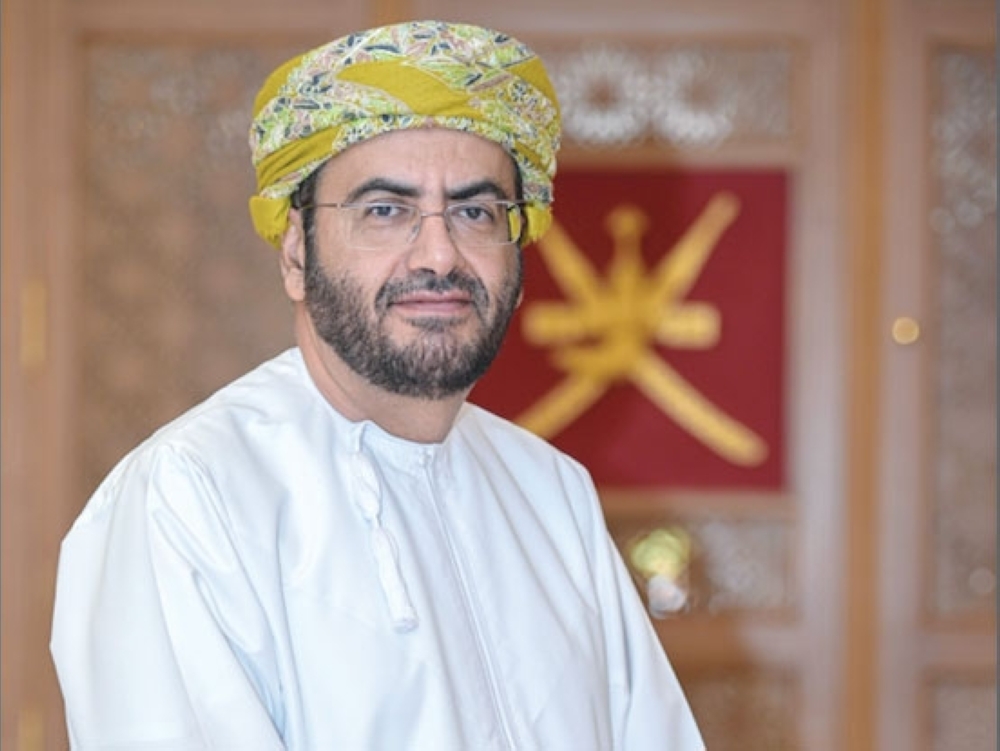

@conradprabhu -
A top official of the Sultanate of Oman has called for the revival of a proposal envisioning an overland oil pipeline connecting Saudi oilfields with an export terminal on Oman’s Arabian Sea coast.

Dr Said bin Mohammed al Saqri (pictured), Minister of Economy, underscored the significance of the pipeline initiative in an interview published in the latest edition of ‘Asharq Al-Awsat’, an Arabic international newspaper headquartered in London. The wide-ranging interview underlined the importance of a strategic crude oil pipeline link between Sultanate of Oman and Saudi in the context of recent efforts by the leaderships of the two countries to impart new momentum to bilateral and economic ties.
The idea of an oil pipeline providing an outlet for Saudi crude directly on the Arabian Sea coast, thus bypassing the contentious Hormuz Strait, has languished since it was first proposed in the early 1970s.
However, following the historic visit of His Majesty Sultan Haitham bin Tarik to Saudi Arabia in July this year, the proposal has gain traction among commentators on both sides.
The long-stalled initiative centres on a proposal for a large-capacity pipeline traversing The Empty Quarter as it travels diagonally across the breadth of the Sultanate of Oman before reaching the coast, possibly at Duqm, on the Arabian Sea. Given Saudi Arabia’s prodigious natural gas reserves, it would also make sense to include a gas pipeline as well.
While the Strait of Hormuz will remain the main gateway for the maritime transportation of the bulk of oil and gas exports from the Arabian Gulf region, the establishment of oil and gas pipelines cutting across the Sultanate of Oman en route to the Arabian Sea has become a subject of “paramount strategic importance”, said Dr Al Saqri in the interview.
The proposal to build an oil pipeline through the Sultanate of Oman en route to the Arabian Sea has existed since the 1970s, the Minister noted, adding that with recent commitments by the two sides to boost bilateral investment and trade relations, the revival and implementation of this initiative has become “strategically important”.
Bilateral trade between the two countries has soared to reach a value of $2.5 billion at the end of 2020, up from $1.4 billion in 2020, Dr Al Saqri said. The number of Saudi companies investing and operating in the Sultanate has also more than doubled to around 1,235 to date, up from 467 in 2010, he stated.
Commenting on the imminent opening of a new road linking Sultanate of Oman with Saudi Arabia, Dr Al Saqri said the carriageway will help unleash an array of trade and economic spinoffs for both countries.
‘Without a doubt, the road will contribute to facilitating trade and the movement of goods in a shorter time and at a lower cost, as it cuts the distance between the countries by about 800 kilometres while also bypassing other neighbouring countries. It will also pave the way for Saudi goods to enter the Sultanate for distribution not only within the different governorates of the country but also onward to other countries through Omani ports – and vice versa,” he explained.
Additionally, the new road will facilitate the easy and convenient overland movement of pilgrims headed to the holy places of Saudi Arabia, without the need to travel through third countries, he said.
“It is also hoped that the road will provide new opportunities for the emergence and growth of Omani and Saudi projects, such as those normally built alongside the road, as well as the possibility of benefiting from facilities currently available in both countries, such as industrial and free zones. It also opens up the possibility of establishing new areas along the border between the two countries, and the possibility of connecting the City of Duqm with the City of Neom in the Kingdom,” he added.
(Picture for illustration only)
Oman Observer is now on the WhatsApp channel. Click here



